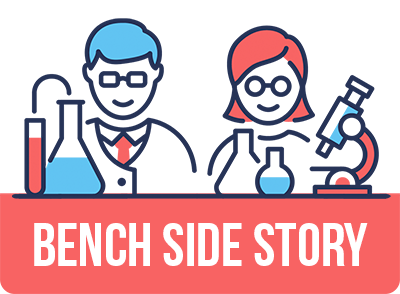RESEARCHER PROFILE
Professor Kristofer Thurecht, Deputy Director of Research & Senior
Group leader, Australian Institute for Bioengineering and Nanotechnology,
University of Queensland, Australia
Finding better ways of treating cancer, aside from finding a cure, aim to provide a better quality of life for those who suffer from it.
Professor Thurecht’s work focuses on nanomedicine and spans across the Australian Institute for Bioengineering and Nanotechnology and the Centre for Advanced Imaging, at the University of Queensland in Australia.
Professor Thurecht undertook his PhD at the University of Queensland and decided he wanted to go to the University of Nottingham in the UK, where his mentors pushed him into the new field of nanomedicine. On returning to Australia he brought his ideas on nanomedicine back to the University of Queensland, where he works today.
His research focuses on understanding how nanomedicines behave in biological environments using high-end imaging infrastructure, with a focus on radiopharmaceutical research to establish next generation drugs for diseases like cancer.
Nanomedicine research, particularly in the field of cancer treatment, has the potential to revolutionise traditional medicine and improve the quality of life for those suffering from the disease. Radiopharmaceuticals and molecular imaging are revolutionising cancer treatment by providing targeted therapies and precise drug delivery, showing potential for groundbreaking advancements in the field.
Radiopharmaceuticals utilise radiation as a potent therapy for treating diseases, particularly cancer. As Professor Thurecht states, the development of radiopharmaceutical for cancer treatment is a promising and innovative field in nanomedicine.
Outside of research Professor Thurecht enjoys fishing and boating with family on weekends.
You Might also like
-
Professor Alex Fornito
PROFESSOR ALEX FORNITO
HEAD OF THE BRAIN MAPPING AND MODELLING RESEARCH PROGRAM
TURNER INSTITUTE FOR BRAIN AND MENTAL HEALTH, MONASH UNIVERSITY
VICTORIA, AUSTRALIA -
Dr Meghan McIlwain
DR MEGHAN MCILWAIN, CLINICAL RESEARCH MANAGER
PRESIDENT, THE NEW ZEALAND ASSOCIATION OF CLINICAL RESEARCH,
AUCKLAND, NEW ZEALAND -
Personalised approaches to lung therapy
Dr. Adams’ research focus is on lung cancer, which is the deadliest of all cancers worldwide. He is working towards developing personalised approaches to pinpoint a therapy that is going to be most effective for the person with that disease. Dr. Adams’ research is focusing on chemotherapy and targeted therapy, and he is trying to identify upfront which of those tumours are likely to be resistant to the therapy. He then identifies strategies that will resensitize or increase the sensitivity of the tumour to the standard of care that is targeted therapy or chemotherapy.



